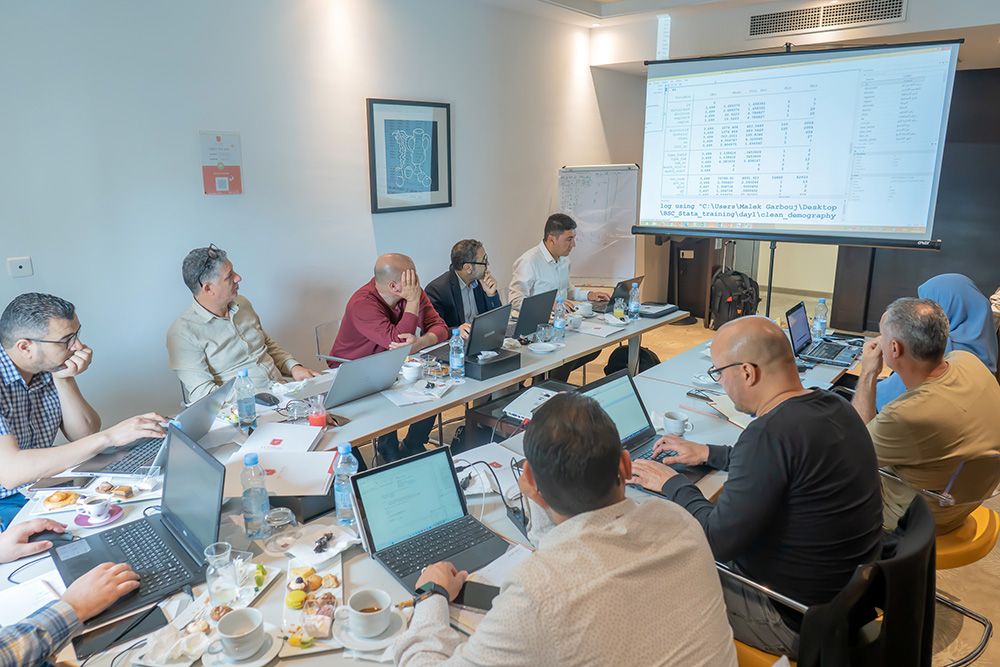News
Libyan Statistics and Census Authority Receives a New Training
Among the training programs that aim to raise the capacities of the Statistics and Census Authority staff in Libya, the third training program on using the “Stata” software was launched from 5/15/2023 to 5/19/2023 in Tunis. The training is supervised by specialized experts who introduced the basics of data cleaning and analysis to the participating trainees.
The participants will practice the theoretical and practical knowledge acquired throughout this training by analyzing the 2022 Libyan Household Income and Expenditures Survey data gathered from February 2022 to January 2023. The result of this survey will illustrate the extent of Libyan households’ spending on food and non-food commodities, including education, health, communications, and other sectors. It will also allow the comparison between household income and expenditure, giving the authorities and ministries the opportunity to make the necessary decisions and actions to support families and solve the identified problems and challenges.
At the end of the training, the participants expressed their gratitude and satisfaction with the results achieved and the skills learned. They emphasized that the training provided them with best practices in data analysis and provided a work methodology that will enable them to process and analyze the data of the Libyan Household Income and Expenditure Survey with accuracy and high quality to obtain concrete results, readings, and recommendations in line with international standards.
This training is part of the E-NABLE project funded by the European Union and implemented by Expertise France. It aims to contribute to developing digital governance tools in Libyan economic institutions, which depend mainly on the availability and accuracy of data.

